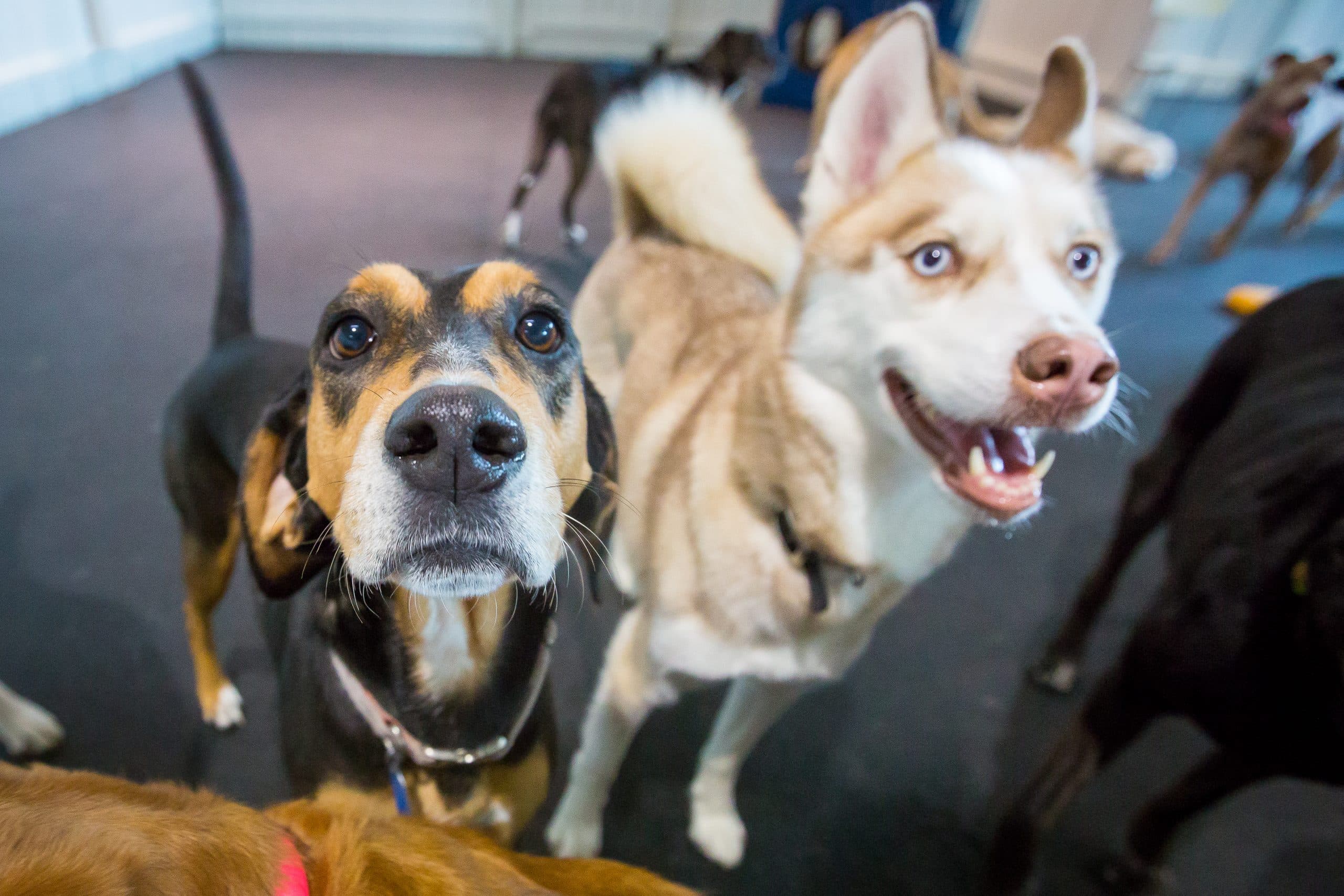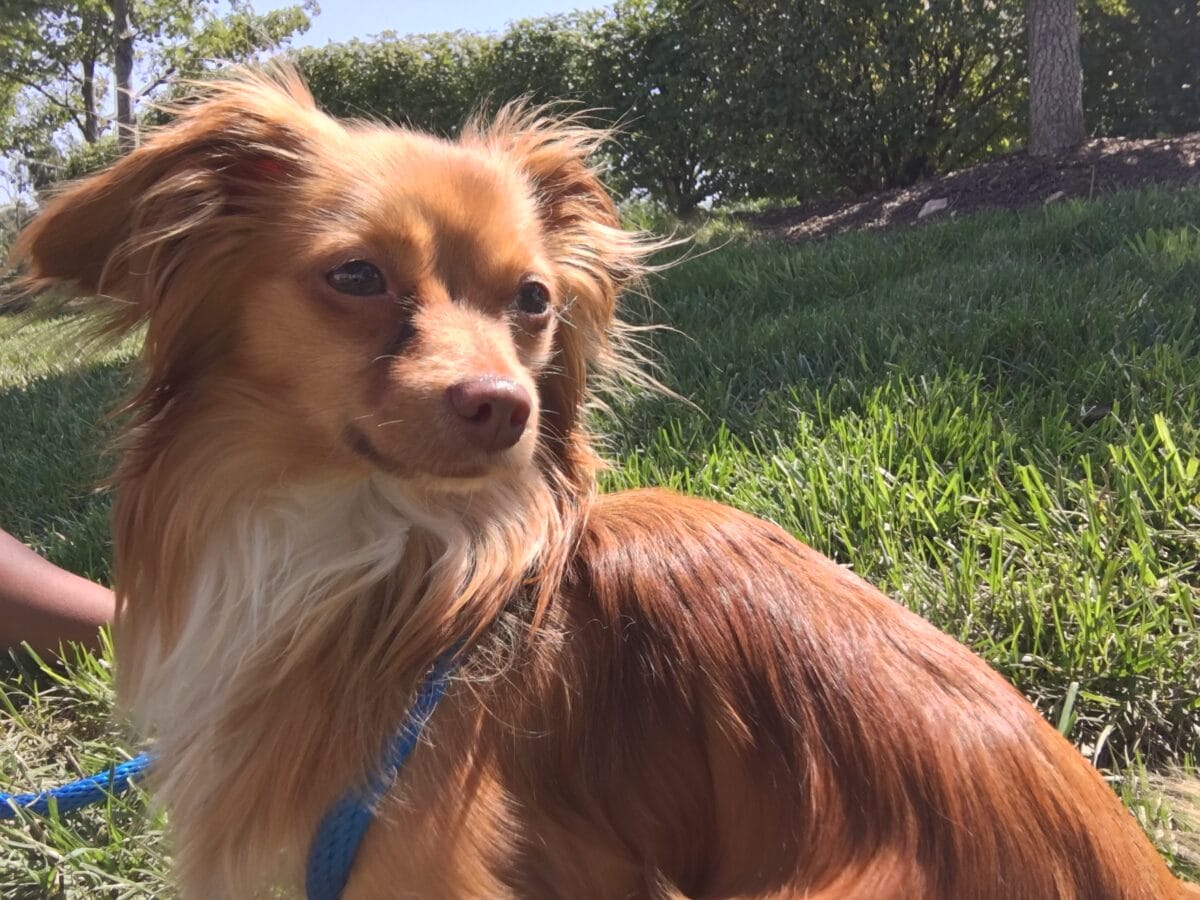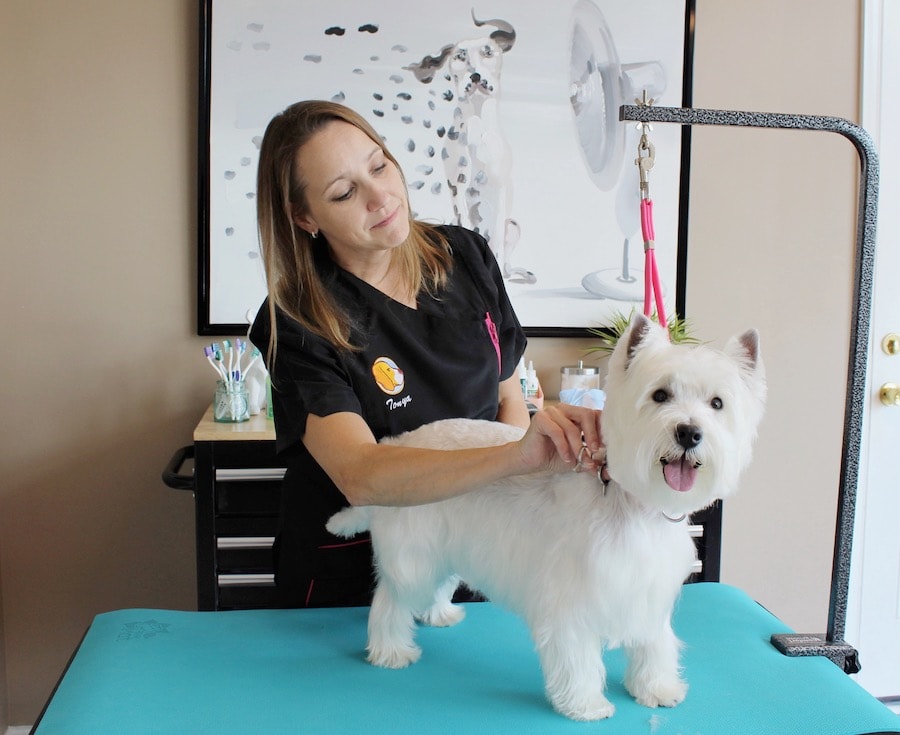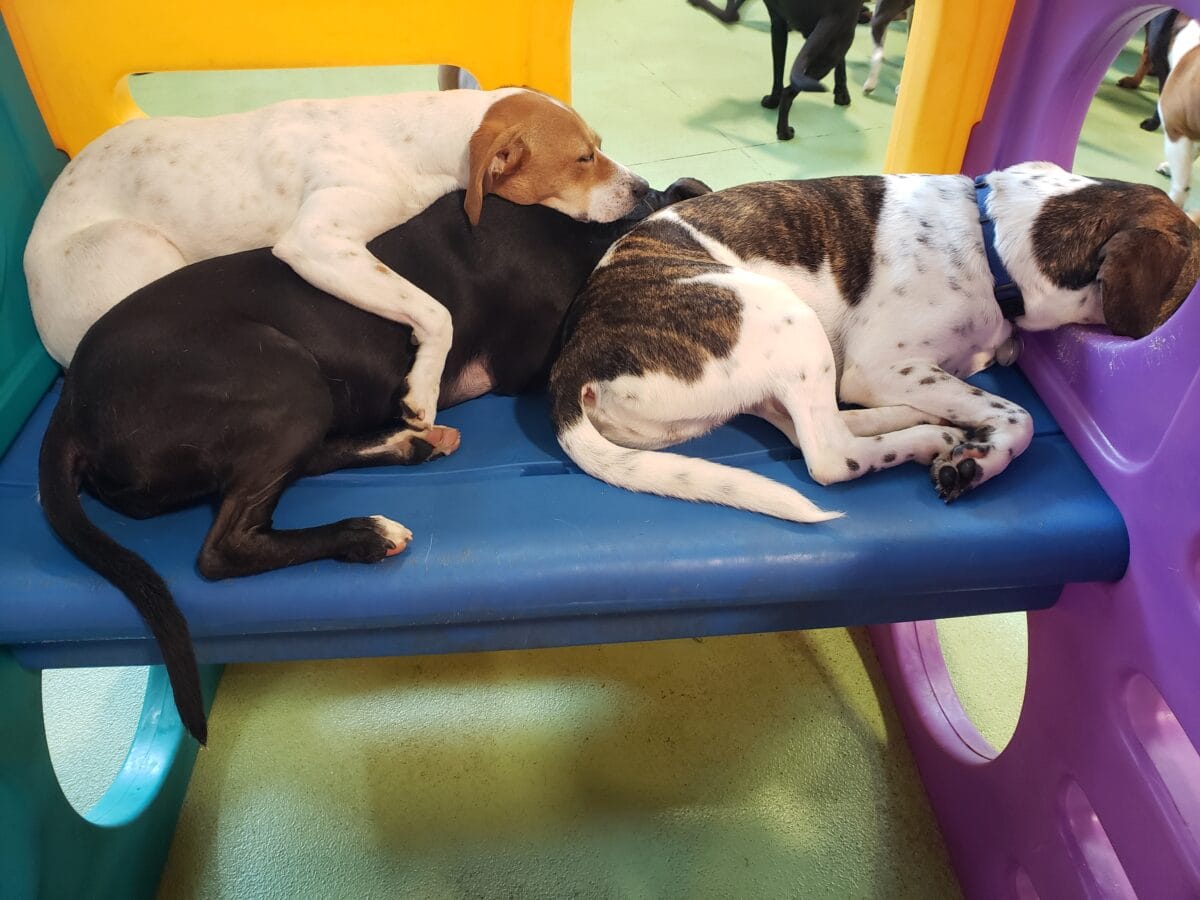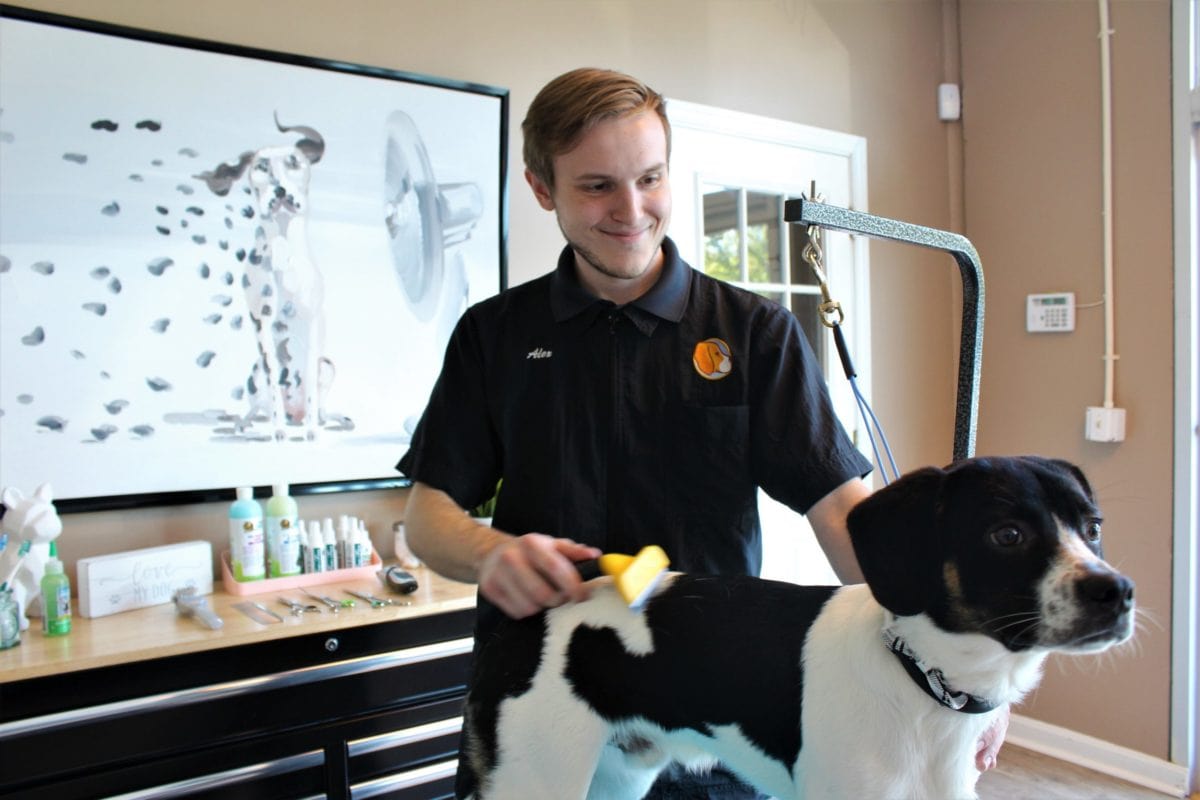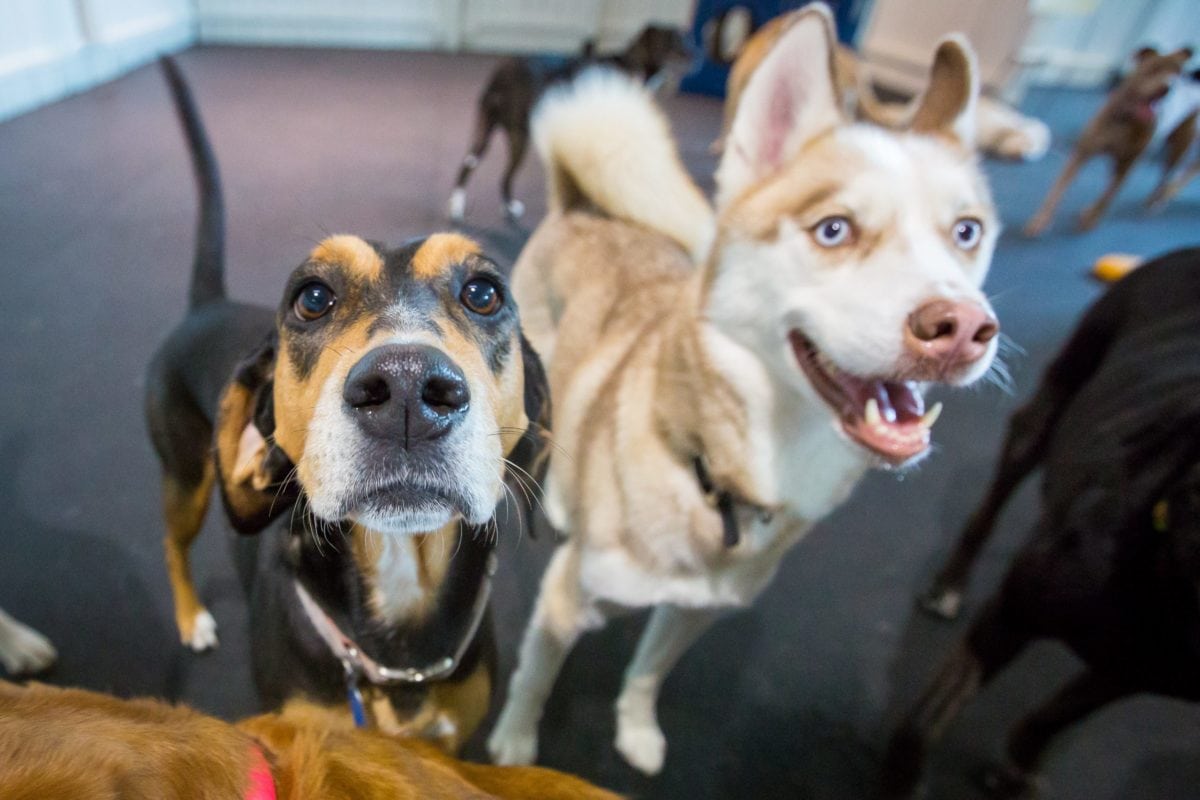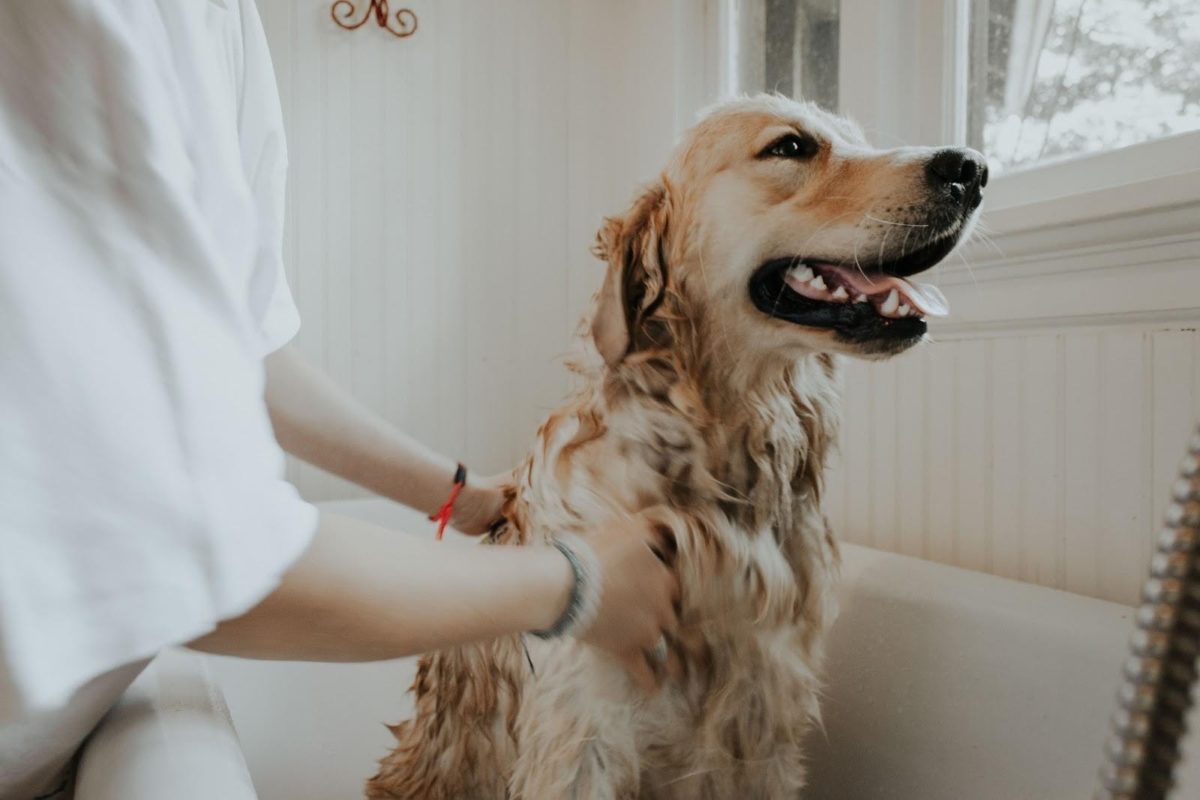Dog parks are a great place to take your dog to burn off some energy and make new friends, but we’ve all witnessed owners who aren’t moderating their dog’s behavior or who don’t step in when things go too far. Always know when to intervene to keep things friendly! A good sign of respectful play is a dog asking permission to play, instead of just leaping at a dog, running them over, or nipping at their heels. Dogs ask permission by dancing around the other dog while making eye contact, doing the easily recognizable play bow, or by running up and tapping them with a paw or their nose. Even if the other dog doesn’t react or makes it clear they don’t want to play, asking permission is always a sign of good social skills.

If the other dog shows interest, watch for them to start syncing up their play styles. Some dogs can get their alternating play bows synced within mere tenths of a second of each other. Some breeds, like huskies, prefer to stand and stare at each other, daring the other to move first. This usually results in a hilarious stop-motion dance, before one finally makes a break for it and the chase begins. But this behavior is very similar to what a dog does when they’re not comfortable with play, or when they’re trying to dominate instead of something more friendly.
If your dog is doing the stare-off with another dog trying to play, make sure they’re relaxed. This means hackles down, no teeth showing, tail held straight back, not high and bristled. If the other dog moves to the right or left and your dog is only following them with their eyes, and you see the whites in the corners, it’s time to give your dog some time to decompress. For dogs to have a safe playtime, both need to see each other as equals.

Some dogs walk into a situation and want to win no matter what, which is where play can escalate very quickly into a fight. Watch for your dog trying to put their chin over the other dog’s neck, mount them, or stand over them as they lie on their back. Some dogs will enter a play situation wanting to be overly accommodating, leaning down when approaching, rolling over, and licking at another dog’s mouth. These behaviors can seem very cute at first, but your dog has decided to be the submissive partner during playtime, meaning they’ll be less likely to stand up for themselves if they get in over their heads and are telling the other dog that they’ll take the blame for any crossed lines. Depending on the dominance of the other dog, this can be a dangerous position to take. Try to keep your dog from taking a too dominant or too submissive stance for their own safety, and maybe direct them towards other playmates who better fit their personality and energy.
If you’re not sure whether a situation is playful, listen for a sneeze or a huff! Those little sneezes you hear during playtime are how dogs tell each other that they are just playing and don’t mean any offense. If the other dog sneezes in response, any infractions have likely been forgiven. Same goes for a dog shaking themselves, as if wet. This is how dog’s shake off the pent-up energy of an uncomfortable and tense situation. If they were the aggressor, they’re acknowledging they went too far and are moving past it. If they were being bullied, a shake off can let you know they’re okay, and letting it go.
You will always know your dog best, so keep a close eye on playtime to learn your dog’s signals. This will give both you and your dog the confidence needed to find a really good playmate, experiment with play styles, and find close and respectful friends!
Tags:

